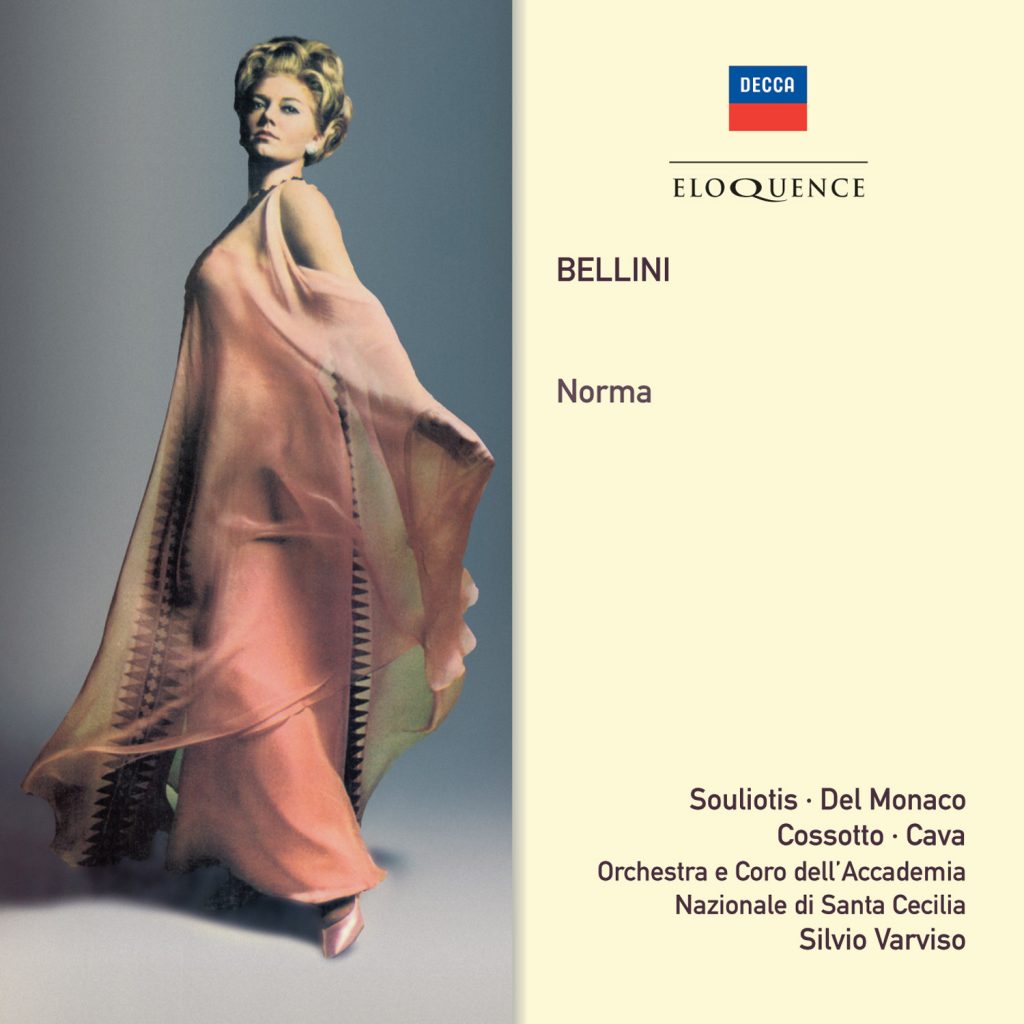Bellini’s advice to librettists, in 1834, might profitably hang above the desks of all who would pursue this singular art today: ‘Carve in your head in adamantine letters: Opera must make people weep, feel horrified, die through singing. It is wrong to want to write all the numbers the same way but they must all be somehow shaped so as to make the music intelligible through their clarity of expression, at once concise and striking.’
Much of it could apply to his opera ‘Norma’. Most of the music was written between September and November 1831 at Blevio on Lake Como, where Bellini was a guest of the great diva, Giuditta Pasta who created the role of Norma. For more than a decade she was the greatest soprano in Europe and undoubtedly influenced the development of Bellini’s vocal style.
This recording, made in Rome in 1967, featured the great Greek soprano Elena Souliotis. Silvio Varviso conducts and the emphasis is on the drama and the creation of three-dimensional characters. It’s an approach that suited Souliotis. Her interpretation ranges from the ravishing simplicity of her ‘Casta Diva’ to desperate mood swings in the scene with the sleeping children (‘Dormono entrambi’) and in her dealings with Pollione. Mario del Monaco is as strong as ever as the Roman proconsul Pollione; his high notes ringing and unforgettable. Adalgisa is sung by Fiorenza Cossotto (b. 1935), the Italian mezzo-soprano regarded by many as one of the finest mezzos of the twentieth century.
VINCENZO BELLINI
Norma
Norma: Elena Souliotis
Adalgisa: Fiorenza Cossotto
Pollione: Mario Del Monaco
Oroveso: Carlo Cava
Flavio: Athos Cesarini
Clotilde: Giuliana Tavolaccini
Orchestra e Coro dell’Accademia Nazionale di Santa Cecilia
Silvio Varviso
Recording Producers: Erik Smith, Christopher Raeburn
Recording Engineers: Gordon Parry, James Brown
Recording Location: Santa Cecilia, Rome, Italy, 21 August – 3 September 1967
‘Elena Souliotis has the power, ferocity, energy for the role … Mario del Monaco’s “Ferisci, ma non interrogarmi” is a splendid moment … Cosotto’s tone is always full and beautiful … Silvio Varviso’s direction is pleasantly spirited … The recording is spacious, clear and well-balanced.’ Gramophone

